

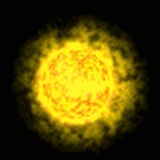

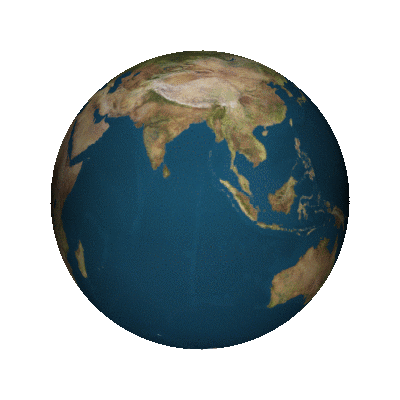

STRIVE FOR PEACE OVER WAR
This is the only way we can
We Must ALL LIVE on this same Planet
Together, so therefore, we must All Strive
to Promote Peace and Understanding
wherever possible between Nations,
Peoples, Cultures and Religions,
and we must choose NEGOTIATIONS
and Trade over Warfare anywhere
there is conflict and suffering
in Our Own Home World.
'de-fang' the perpetual
BLOOD FOR PROFIT
Globalist Corporate
Criminal Cartel
'War Machine'!

SEEK TRUTH !
[ What is Truth? ] ------------------------------------------ ------------------------------------ [ What is Science? ]
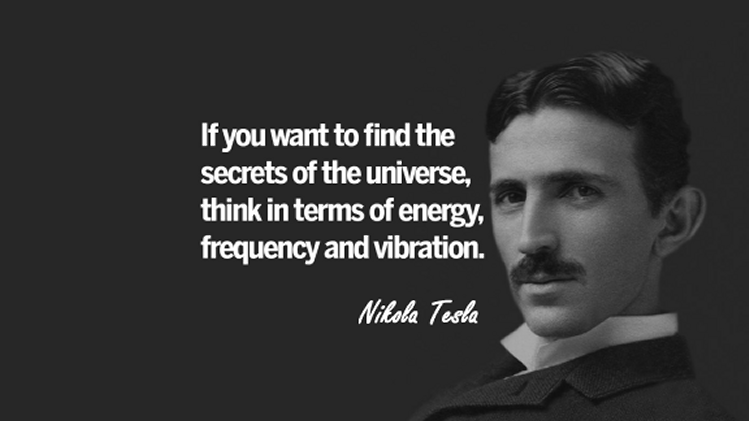
What is SCIENCE?...
The Definition of ScienceEssential Meaning of Science
Science makes use of the scientific method, which includes the careful observation of natural phenomena, the formulation of a hypothesis, the conducting of one or more experiments to test the hypothesis, and the drawing of a conclusion that confirms or modifies the hypothesis.
- Knowledge about or study of the natural world based on facts learned through experiments and observation which may be in a particular area of scientific study of a particular branch of science such as biology, physics, chemistry, or any of the branches or sub-branches of natural or physical science
- Knowledge from the careful study of the structure and behaviour of the physical world, especially by watching, measuring, and doing experiments, and the development of theories to describe the results of these activities
- A branch of knowledge or study dealing with a body of facts or truths systematically arranged and showing the operation of general laws as in the mathematical and physical sciences
- Systematic knowledge of the physical or material world gained through observation and experimentation
- Systematized knowledge in general as of facts or principles; knowledge gained by systematic study
- The observation, identification, description, experimental investigation, and theoretical explanation of phenomena: new advances in science and technology
- The systematic study of the nature and behaviour of the material and physical universe, based on observation, experiment, and measurement, and the formulation of laws to describe these facts in general terms
- Any body of knowledge organized in a systematic manner
- A branch of knowledge or study dealing with a body of facts or truths systematically arranged and showing the operation of general laws
- Any of the branches of natural or physical science
- Systematized knowledge in general
- A particular branch of knowledge
- Any skill or technique that reflects a precise application of facts or principles
The Scientific Method
The scientific method is an empirical method of acquiring knowledge that has characterized the development of science since at least the 17th century (with notable practitioners in previous centuries). It involves careful observation, applying rigorous skepticism about what is observed, given that cognitive assumptions can distort how one interprets the observation. It involves formulating hypotheses, via induction, based on such observations; experimental and measurement-based testing of deductions drawn from the hypotheses; and refinement (or elimination) of the hypotheses based on the experimental findings. These are principles of the scientific method, as distinguished from a definitive series of steps applicable to all scientific enterprises.
Although procedures vary from one field of inquiry to another, the underlying process is frequently the same from one field to another. The process in the scientific method involves making conjectures (hypothetical explanations), deriving predictions from the hypotheses as logical consequences, and then carrying out experiments or empirical observations based on those predictions. A hypothesis is a conjecture, based on knowledge obtained while seeking answers to the question. The hypothesis might be very specific, or it might be broad. Scientists then test hypotheses by conducting experiments or studies. A scientific hypothesis must be falsifiable, implying that it is possible to identify a possible outcome of an experiment or observation that conflicts with predictions deduced from the hypothesis; otherwise, the hypothesis cannot be meaningfully tested.
The purpose of an experiment is to determine whether observations agree with or conflict with the expectations deduced from a hypothesis. Experiments can take place anywhere from a garage to CERN's Large Hadron Collider. There are difficulties in a formulaic statement of method, however. Though the scientific method is often presented as a fixed sequence of steps, it represents rather a set of general principles. Not all steps take place in every scientific inquiry (nor to the same degree), and they are not always in the same order.
At the core of the other sciences lies a problem-solving approach called the scientific method. The scientific method has six basic steps, plus one feedback step:
The scientific method is used in all sciences—including chemistry, physics, geology, and psychology.
- Ask a question
- Perform research
- Form and establish a hypothesis, or testable explanation
- Test you hypothesis by conducting an experiment
- Make an observation
- Analyze the results and draw a conclusion
- Use the results to make new theories, hypotheses, or predictions and present the findings
The scientists in these fields ask different questions and perform different tests. However, they use the same core approach to find answers that are logical and supported by evidence.
What is the scientific method?
The scientific method is a process used when conducting experiments and exploring observations. Some areas of science rely more heavily on this method to answer questions, as they are more easily tested than other areas. The goal of this method is to discover the relationships between cause and effect in various situations and applications.
When following the scientific method, scientists must ask questions, gather and look at the evidence and determine whether the answers to their questions can be found through that evidence. Scientists also use the method to determine whether all information presented and found can combine to create a logical answer. The scientific method provides a way to apply logical and rational problem-solving methods to scientific questions.
The seven steps of the scientific method
Based on the type of question being asked, the type of science being applied and the laws that apply to that particular branch of science, you may need to modify the method and alter or remove one or several of the steps. Here are the seven steps of the scientific method illustrated by an example scientific hypothesis:
1. Ask a question
The first step in the scientific method is asking a question that you want to answer. This question will include one of the key starters, which are how, what when, why, where, who or which. The question you ask should also be measurable and answerable through experimentation. It is often something that can be measured with a numerical result, although behavioral results are part of the scientific method as well.
Example: Perhaps, you want to test an experiment about the causal relationship between music and certain domesticated animals.
A good question to begin with might be: ”Does music impact the behavior of certain species of domesticated animals, such as canines and felines?”
2. Perform research
With your question formulated, conduct preliminary background research to prepare yourself for the experiment. You can find information through online searches or in your local library, depending on the question you are asking and the nature of the background data. You may also find previous studies and experiments that can help with your process and conclusions.
In this case, you might start by reviewing previous scientific studies for animal experiments related to their reactions to music. Key to finding pertinent information might be looking at studies that study animal behavior in relation to art or domestic animals directly affected by music.
3. Form and establish a hypothesis, or testable explanation
A hypothesis is an educated guess that seeks to answer a question that can be systematically tested. Your hypothesis should also include your predictions that you can measure through experimentation and research.
Example: Based on your research, you start to fine-tune your thoughts about what will probably happen: “If I play classical music, my dog and cat will remain in the room with me. If I play rock-and-roll music, my dog and cat will leave the room.”
4. Test your hypothesis by conducting an experiment
Next, test your hypothesis by conducting an experiment. Your experiment is a way to quantifiably test your predictions and should be able to be repeated by another scientist.
Example: You decide to test it out: You bring the cat and dog into the same room where a sound system is available. You play classical music at a low volume. Both animals remain in the room. Then, you change scientist the music to rock-and-roll at the same volume. Both animals remain in the room.
5. Make an observation
Assess your scientific process and make sure that the conditions remain the same throughout all testing measures. If you change any factors in your experiment, keep all others the same to maintain fairness. After you complete the experiment, repeat it a few more times to make sure the results are accurate.
Example: In reviewing the cause and effect of your experiment, you observe that despite what you had thought would happen, did not. More specifically, the type of music being played did not impact the reaction of the animals.
Therefore, you adjust your hypothesis to state that the animals will react based on the volume of the music. You conduct another experiment, playing classical music at a low volume and then at a high volume. The animals remain in the room when the music is quiet and leave the room when the music is loud.
6. Analyze the results and draw a conclusion
You can now take your experiment findings and analyze them to determine if they support your hypothesis.
Drawing a conclusion means determining whether what you believed would happen actually happened. If it did not happen, you can create a new hypothesis and return to step four, and conduct a new experiment to prove your new theory. If what you hypothesized happened during the experimentation phase, the final step is putting together your findings and presenting them to others.
Example: You determine the behavior of animals is more affected by the volume of music being played rather than the type of music played.
7. Use the results to make new theories, hypotheses, or predictions and present the findings
The method for presenting your findings depends on your scientific position and level. If you are entering a project into the science fair, you will likely communicate your findings in a written report, on a display board or during a presentation at the event. If you are a scientist by profession, you may present your findings in a scientific publication or to your supervisors.
Example: You write a formal report and prepare an oral presentation to share your findings.
Apr 11, 2023 - The politicization and commercialization of science is something of a recurring theme in many of Crichton’s best-known novels, such as Congo, Timeline, Prey, and of course, Jurassic Park. A Harvard-trained MD, Crichton regularly used his thrilling plots to argue that humanity must embrace science as a tool but not allow it to become our master. As a novelist, he specialized in demonstrating the chilling consequences of the latter, usually quite dramatically, with people getting eaten by dinosaurs or gorillas or nanobots or what have you. [ READ MORE ]
'True Science' is the objective search and discovery
of 'True Reality' and it is synonymous with Truth...
Why Politicized Science is Dangerous
If you read State of Fear and substitute “coronavirus” for “global warming,” you will have a very contemporary story indeed—right down to the way skeptics are treated in the book.
Scientific Consensus – A Manufactured Construct Scientific consensus has become a manufactured construct,
dictated by politics and power.
Apr 21, 2023 - Consensus is the business of politics….The greatest scientists in history are great precisely because they broke with the consensus. There is no such thing as consensus science. If it’s consensus, it isn’t science. If it’s science, it isn’t consensus. Period.In a recent interview, famed astrophysicist Neil deGrasse Tyson was challenged on his scientific views about COVID-19 and he said “I’m only interested in consensus” – words that would have Nicholas Copernicus and Galileo Galilei rolling in their graves.
The appeal to “scientific consensus” is fraught with problems, just like “The science is settled” and “Trust the science” and other authoritarian tropes that have dominated the pandemic.
A widely accepted theory, such as the theory of evolution, depends on a consensus being reached among the scientific community, but it must be achieved without censorship or reprisal.
[ READ MORE ]
The following charts illustrate various representations regarding the accelerated growth of technology as technology always follows scientific discoveries as to how the nature of the reality of the Universe in which we live in works.
Notice how the exponential growth of technological development represents the collective accumulation of contributions of more and more scientists and engineers that are contributing to this overall growth....
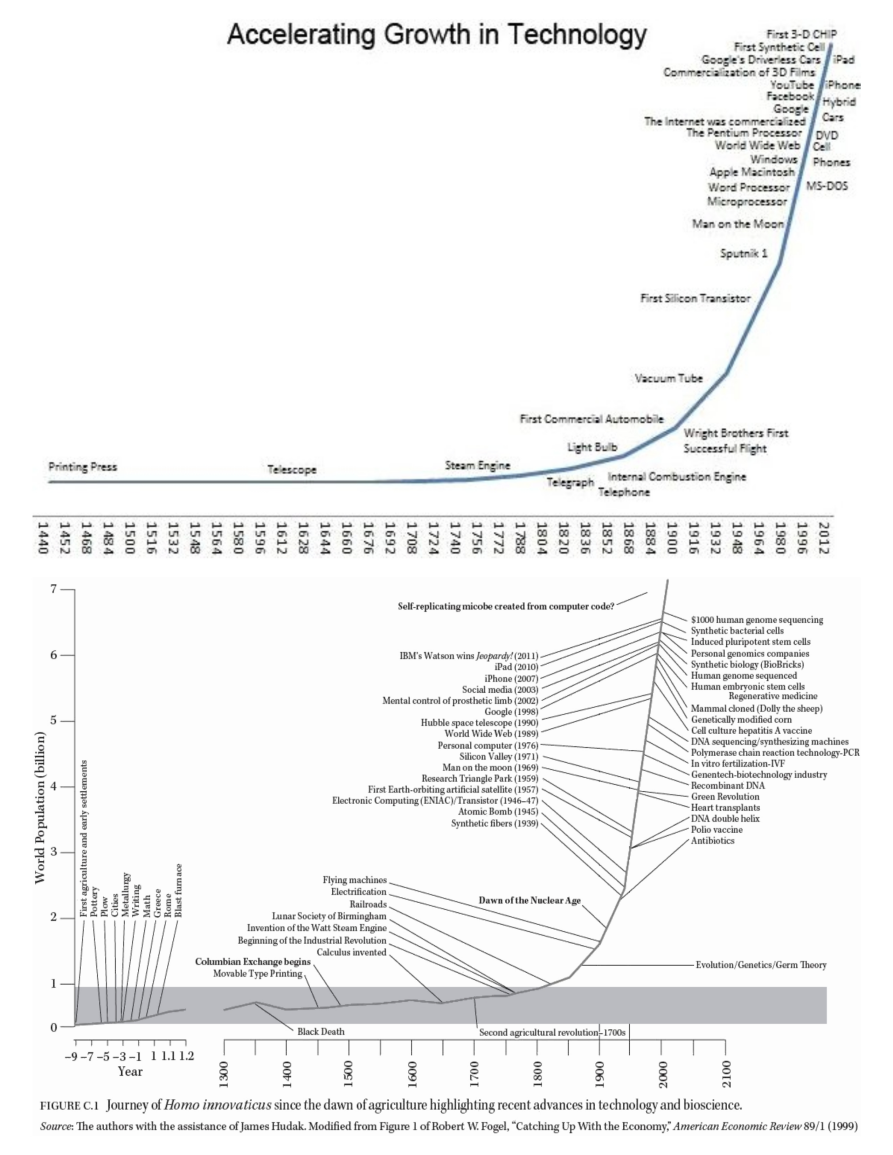
These following charts regarding the same subject shows the growth moving toward a much more vertical upward trend as the rate of technological growth accelerates to a near incomprehensible level.
Note that the trend can never grow perfectly vertical as 'the march of time' factor dictates that this vertical trend would always be slightly inclined in the direction of the 'flow of time'.
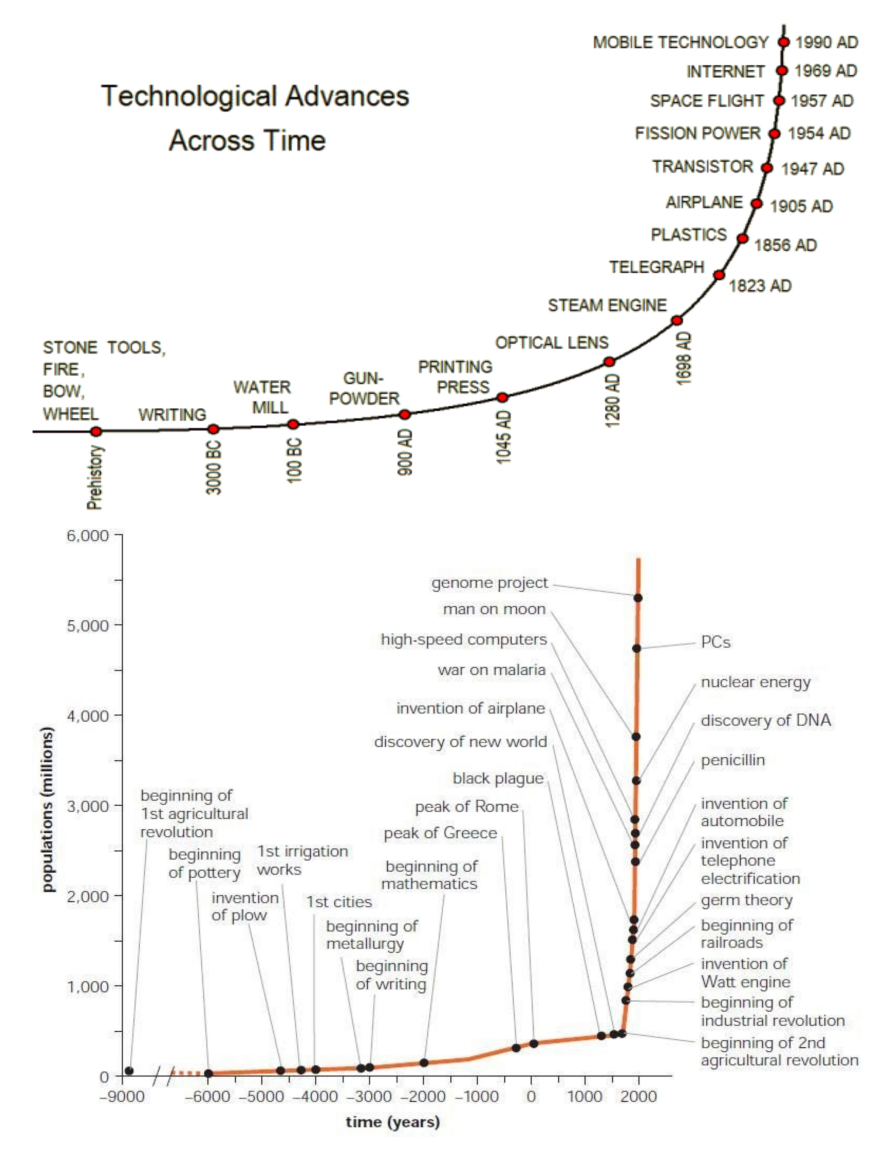
These following charts illustrate the social disruption of this accelerated growth and the relationship between human adaptation and technological change.
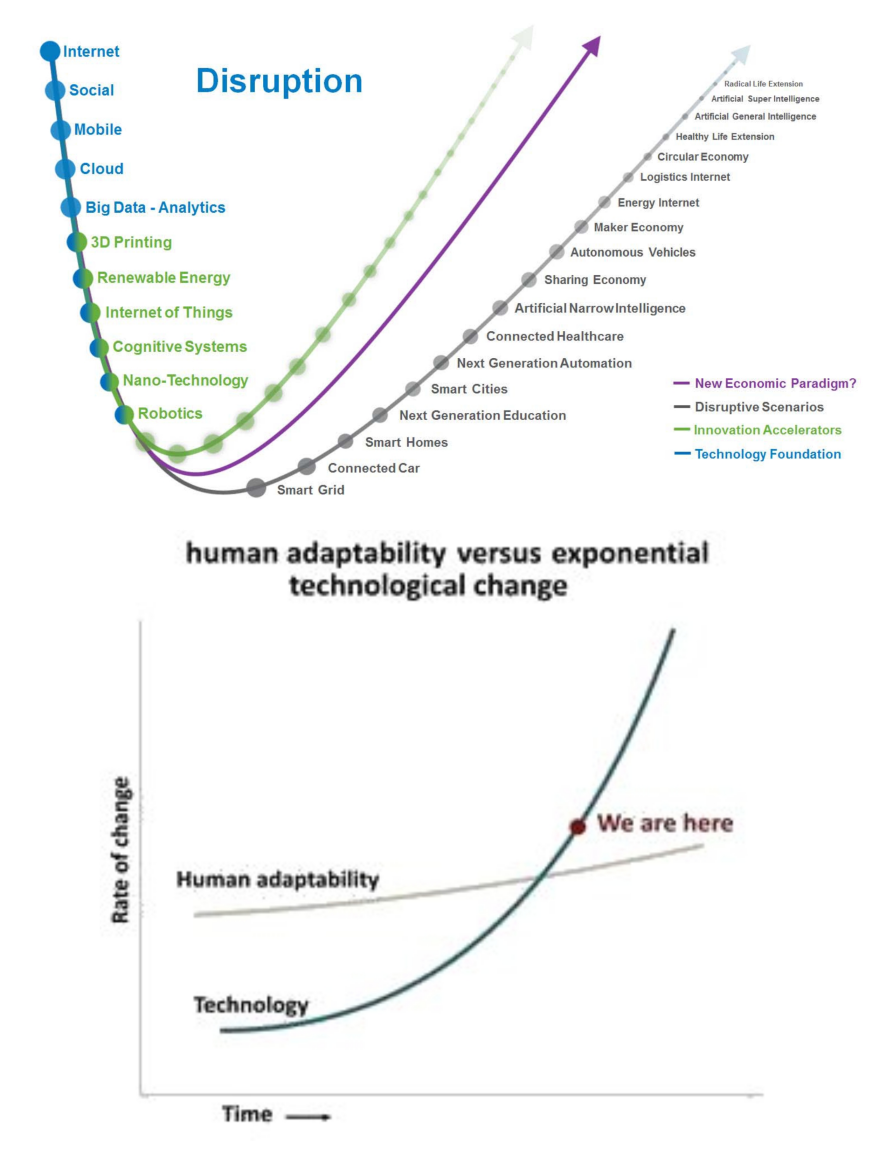
And finally, 'The Kurzweil Curve showing how the power of computational technology will keep growing exponentially up to the point of 'Technological Singularity' and beyond.
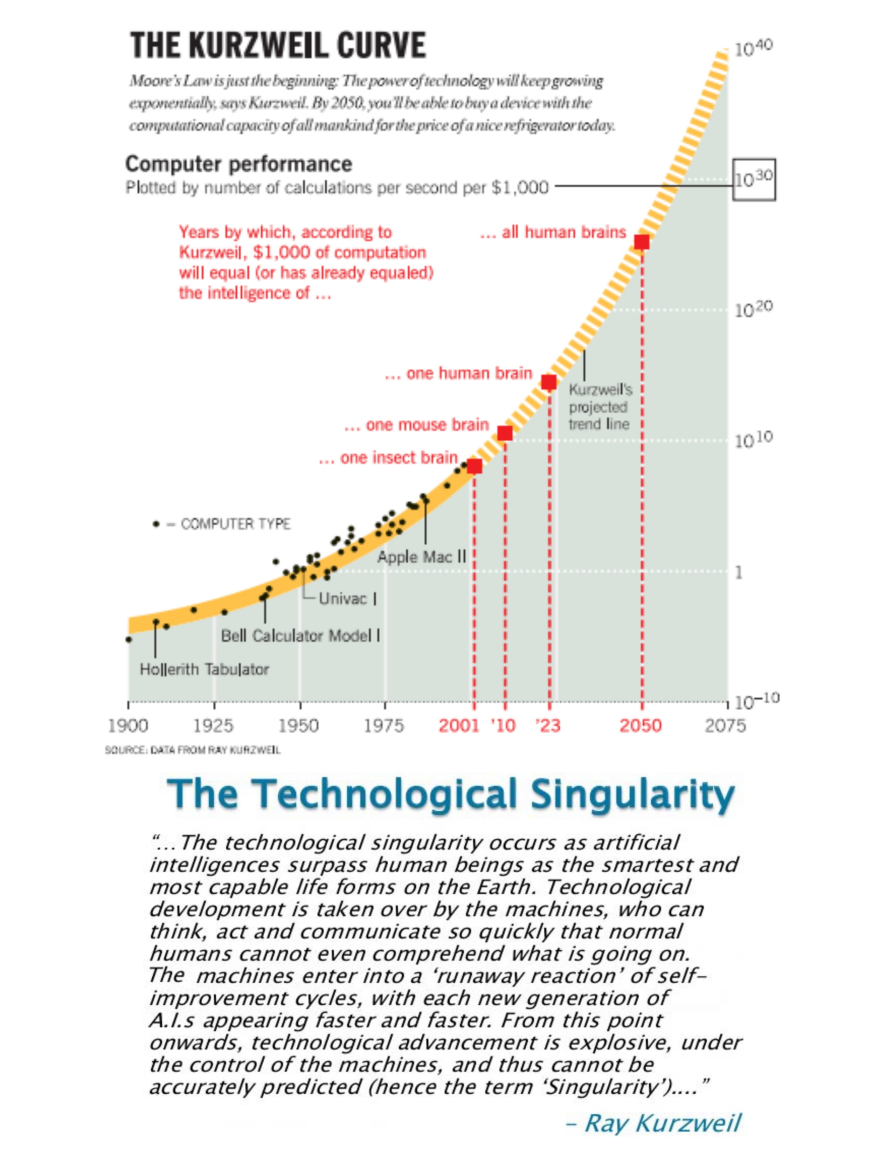

It is said that "Music is a Universal Language"
Music is Energy for the Spirit...

(Best listened to 'piped' through a home stereo)

Sacred Spirit - Book Of Secrets - Runtime: 1:29:21
- If your audio control does not work:
[ click here ]

(I think there must be a message in here, somewhere...)

Classic Sci-Fi Entertainment
Other Truth Project Pages:
Archbishop Issues Warning of 'The Great Reset'
Dr. Robert W. Malone, MD Warns Against The "Vaccines"
Catherine Austin-Fitts Lays Out the Global Beast Slave System
Greg Reese Reports on The Covid Scam and on the "Vaccines"
Biosludge!: They are now turning Human Beings into Fertilizer
The Lost Years of Jesus - Travel to India, Tibet and Persia?
Main-Stream Media Coverage about the UFO Phenomena
Civilizational Change: Hard Times - Strong / Weak Men
SHUT DOWN Bio-Weapons Labs and the Death Shots!!
Earth Changes: Worlds Between the Earth and the Sky
The AI Control Grid: Threats to Our Planet & Humanity
The Basics: Truth and the Nature of Scientific Inquiry
What YOU CAN DO To Prepare And Fight The Cabal!
The Nature of the Human Mind and Consciousness
The 'Perfect Storm' of Global Famine on the Horizon
Technology: The Good, The Bad, and The Terrifying
Good Times - Hard Times - Strong Men - Weak-Men
Nature of Reality: Of Information, Energy & Matter
David Icke - World Events and Human Psycopathy
CBDC FINANCIAL ARMAGEDDON IS BEGINNING
Dr. Steven Greer - The Cosmic Hoax and More
Global War And The Thermo-Nuclear Threat
The Fake "Vaccine" 'Clot-Kill Shots'
The Global Depopulation Agenda
Battlefield America: 2022-2024
[ Home ] -- [ The Basics: Truth and the Nature of Scientific Inquiry ] -- [ Nature of Reality: Of Information, Energy and Matter ]
[ The Nature of the Human Mind and Consciousness ] -- [ Earth Changes: Worlds Between the Earth and the Sky ]
-- [ Technology: The Good, The Bad, and The Terrifying ] -- [ The Control Grid: Threats to Our Planet & Humanity ]
[ What YOU CAN DO To Prepare And To Fight The Cabal! ]
• Information – Education – Discernment •
• Truth – Knowledge – Reason – Understanding – Wisdom – Conscience •
• Intuition – Enlightenment – Faith – Love •
A Project of
The Church of Universal Truth
This is our test...